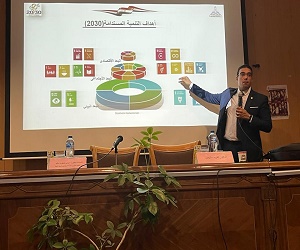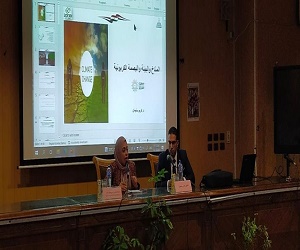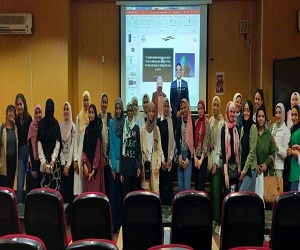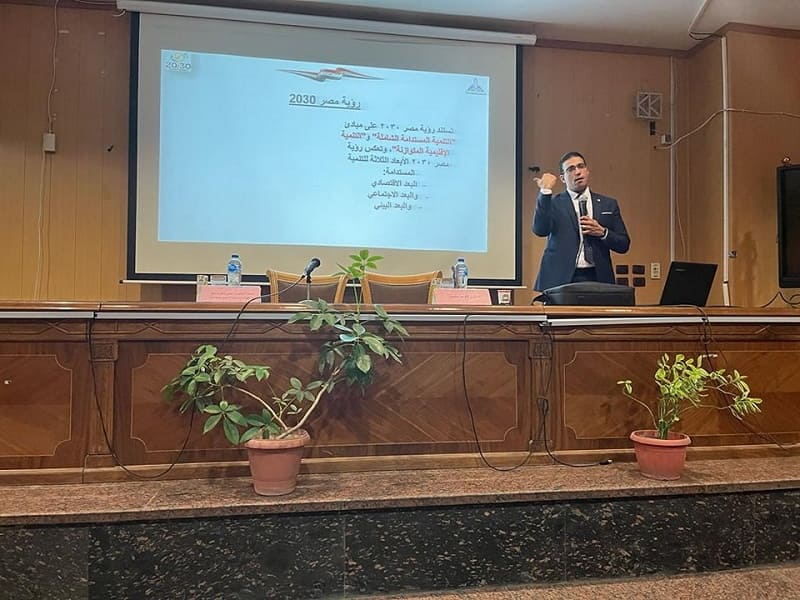The Faculty of Al-Alsun organizes a symposium entitled Climate Change and Carbon Footprint and the University's Efforts to Transform into a Green University
The Faculty of Al-Alsun at Ain Shams University organized a symposium entitled "Climate Changes, the Carbon Footprint and the University's Efforts to Transform into a Green University", under the auspices of Prof. Dr. Mahmoud El-Meteini, President of the University, Prof. Dr. Salwa Rashad, Dean of the Faculty, and in the presence of Prof. Dr. Youmna Safwat, Vice Dean for Community Service and Environmental Development, attended during which Prof. Dr. Karim Suleiman, Professor of Environmental Sciences and Sustainability at the Faculty of Science, in the presence of a group of faculty staff, the teaching assistants, and students.
 |
 |
 |
||
Prof. Dr. Karim Suleiman, highlighted the concept of sustainable development in all its aspects and its impact on society in the event of its application and achievement of its objectives. He also addressed the stages of the United Nations agenda for sustainable development goals.
He explained how to calculate the carbon footprint, explaining that we only need three steps to get the result, the first step is to collect data, such as electricity, water, gas and fuel...etc. Then we search for the factors to know the total carbon dioxide emissions according to consumption, and finally we apply this equation: carbon footprint = quantity x emission factor.
The symposium also addressed the most important main points of Egypt's Vision 2030, a national agenda launched in February 2016 that reflects the country's long-term strategic plan to achieve the principles and goals of sustainable development in all fields, and its settlement in the various Egyptian state agencies. Egypt’s Vision 2030 is based on the principles of “comprehensive sustainable development” and “balanced regional development.” Egypt’s Vision 2030 reflects the three dimensions of sustainable development: the economic dimension, the social dimension, and the environmental dimension.
He also addressed the efforts of Ain Shams University towards the issue of climate change, as Ain Shams University recently made a number of great efforts in the field of energy and efficiency of use through the application of a number of policies and programs, including the use of energy-saving devices, renewable energy sources and smart buildings.
He added that the IHUB Innovation and Entrepreneurship Center building is the first building in Egypt to obtain an international EDGE certificate, as the building has an energy savings rate of 42%.


.svg)




